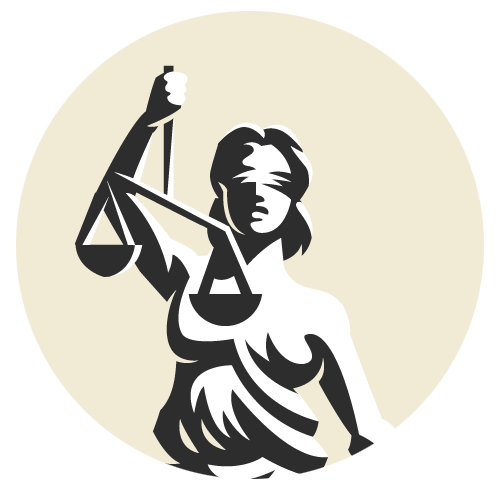An Attorney That Cares

Serving Monroe, NY & Milford, PA
When you require legal counsel, J. A. Poka & Associates is here for you. As a general practice law firm led by Attorney John A. Poka, we have represented the best interests of our clients for over 30 years in matters of bankruptcy, divorce, personal injury, and much more. If necessary, our firm is ready, willing, and able to go to trial for litigation or negotiation.
With offices in Monroe, NY, and Milford, PA, we are available seven days a week to meet your legal needs and even offer virtual meetings.
Your Case Matters to Us
Your case is as important to us as it is to you. Our firm provides the sword and shield for anyone needing protection or being overwhelmed by financial distress, crimes of desperation, or needing relief from experiencing harm inflicted by either a corporation or a person. We are dedicated to taking the time to understand your goals and objectives in order to achieve the results you deserve.
Areas of Practice
No matter what your legal needs are, we will be a zealous advocate for you. Our practice areas include the following:

Attorney John A. Poka
Attorney John A. Poka is proud to have come to the United States as a legal immigrant and has always been thankful for the opportunities offered by this country. He has spent his lifetime committed to public service. This service has been exemplified by serving the needs of the community as a YMCA Director, New York City Police Officer, New York City Teacher, Excavation Construction Company Operator, and by graduating from a City University Law School.
Attorney Poka received his Master’s degree in Law Advocacy from Temple University and has been dedicated to meeting the legal needs of his clients for over 30 years. He is a proud father, husband, son, grandfather, and great grandfather.
Memberships & Achievements
- Pike County Bar Association
- Middle District of PA Bankruptcy Bar
- Middle District Court
- Mid Hudson Bankruptcy Bar Association
- Orange County Bar Association
- Published Book on Law & Order
FAQ
We have compiled a number of frequently asked questions to help explain various areas of the law.
What is bankruptcy?
Bankruptcy is the declaration by an individual, corporation, or nonprofit that it is unable to repay its debts to creditors. It is the lawful way for you to parachute into a “fresh start” and achieve dischargeability of those debts. However, it is important to understand which type of bankruptcy filing is the most relevant to your situation. We can easily review the process with you.
What are the different types of bankruptcy?
For individuals, there are two types of bankruptcy protection vehicles, chapter 7 and chapter 13. Chapter 7 bankruptcy is commonly known as a liquidation bankruptcy, and usually refers to a person with little or insufficient disposable income. Chapter 13 bankruptcy is often referred to as a reorganization bankruptcy and is eligible for individuals who have a regular income or make more than a certain threshold amount.
What does bankruptcy filing achieve immediately?
Pursuant to letter 11 U. S. C. Section 362 (c), the automatic stay protection is a temporary federal injunction that immediately stops most collection efforts (home foreclosures, car repossessions, wage garnishments) by creditors (banks), collection agencies, and government entities against a debtor, their property, and other lawsuits.
Are all my debts dischargeable through bankruptcy?
While numerous debts are dischargeable through bankruptcy, there are specific debts and obligations for which you will be responsible for. These include, but are not limited to: matrimonial issues like child support and alimony payments, student loans, criminal restitution, debts for personal injuries/death resulting from a DUI/DWI, and certain taxes. The way that a debt is discharged will differ depending on whether your file for chapter 7 or chapter 13 bankruptcy.
What the 341 meeting of the creditors?
Within 14 days of filing the bankruptcy petition, schedules of the debtor’s assets and liabilities must be filed. The failure to do so will result in dismissal of the bankruptcy case.
The 341 meeting of the creditors is a hearing all debtors must attend in any bankruptcy, usually held 20 to 30 days after the filing of the bankruptcy petition. At this meeting, there is a trustee or representative of the U.S. Trustee to review the debtor’s petition and schedules face-to-face with you, the debtor, and your attorney. You, as the debtor, are required to answer questions under the penalty of perjury about your conduct, property, liabilities, financial condition, and any other matter that may affect discretion of the case or your right to discharge. This procedure is to ensure that you, the debtor, understand the bankruptcy process.
What is credit counseling?
Before filing bankruptcy, federal law (since 2005) requires you to undergo credit counseling. Credit counseling is intended to instruct you as to personal financial management. Pre-filing and post-filing counseling is mandatory in order to file for bankruptcy and obtain a discharge. The pre-filing and post filing certificate of completion must be filed with the court. We will provide you with additional explanation and a list of court approved credit counselors.
What is a credit matrix?
A credit matrix is a list of the creditors in your case which must be filed in the proper format so that it can be used by the court’s automated noticing system. Any matrix which does not conform to requirements will be considered deficient and will slow the progress of your case, and may even lead to its dismissal. If a creditor is left out, an amendment to the matrix list can always be done prior to your case being discharged.
What will discharging debts in bankruptcy give me?
A discharge releases a debt from personal liability debts, known as dischargeable debts, and prevents the creditors that are owed those debts from taking any action against the debtor to collect the debts as a personal obligation. It does not discharge enforcement of a lien or other encumbrance on property of the debtor. In other words, bankruptcy stops further legal action against you, through what is called an “automatic stay”. The discharge also prohibits creditors from communicating with you, the debtor regarding the debt.
How does bankruptcy court determine my eligibility for bankruptcy?
The bankruptcy court analyzes your ability to file for bankruptcy by considering your state’s income threshold, the number of dependents you have, exemptions, and the schedules that you have filed. These schedules include: 1) schedules I and J, which reflect your income and expenses, and 2) the means test analysis, which will determine if there is a presumption of abuse.
What is the means test?
The means test is used in cases where the chapter 7 individual debtor’s current monthly income exceeds the state’s median family income. It is used to determine if the debtor has the ability to repay a minimum level of general unsecured debt after the repayment of allowable monthly expenses. If the means test shows a debtor has such an ability to repay, there is a “presumption of abuse”. In other words, if the debtor(s) receive(s) a chapter 7 discharge, this would be an abuse of the bankruptcy process, because the debtor(s) may have the ability to repay debts outside of bankruptcy or through a Chapter 13 repayment plan over time.
What is the judgment procedure in bankruptcy?
Judgments are not automatically discharged in bankruptcy. Whether you file a chapter 7 or chapter 13, a motion for lien avoidance must be filed with the court and you must be able to show that the debt is not secured. Once the motion is filed, a hearing will be held and you will have to appear before the judge, who will make a decision and render an order to avoid the lien. Once the order has been granted, that notice of entry must be prepared and filed with the state court where the judgement originated. Otherwise, the judgment will never be removed. All interested parties to the judgment must be served.
Monroe, NY Office
103 Steven Court
Monroe, NY 10950
Phone: 845-782-4587
Fax: 845-238-2603
Email: pokalaw@gmail.com
Milford, PA Office
509 Broad Street
Milford, PA 18337
Phone: 570-296-5297
Fax: 570-296-0211
Email: pokalaw@gmail.com
Languages Spoken:
English | Hungarian | Spanish
Hours:
Sunday – Saturday: 6:00 AM – 12:00 PM
